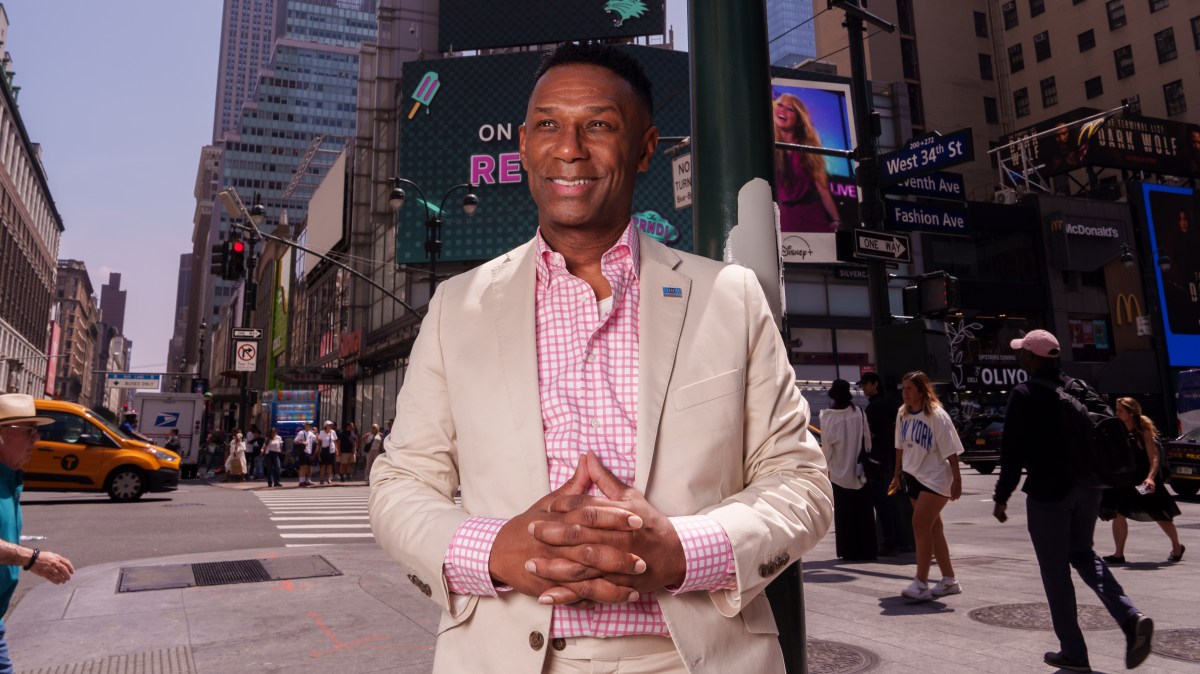The head of the world’s largest human resources organisation believes chief executives are slowing down recruitment because they fear workers will soon be replaceable by artificial intelligence.
Johnny C Taylor Jr, president and chief executive of the Society for Human Resource Management, which has about 340,000 members across 180 countries, said business leaders have told him they do not want to repeat mistakes made during the pandemic, when some companies overhired and then had to fire staff in large numbers soon afterwards.
“We’ve naturally become more conservative in our hiring, so if there’s anything on the horizon that suggests that we may not need those people, we don’t hire them,” Taylor said.
“I think there was a lot of guilt for, ‘I hired you away from another job, you had a perfectly great life, I brought you over, I recruited you … and then I got rid of you through no fault of your own’. So the impact of AI on us is: we’re hesitant to bring people on for fear that we’re going to have to look at you across the table, and say, ‘listen, you’re great, you did great work, in fact you worked really hard, but I don’t have a job for you’.”
Taylor, a lawyer and former HR executive for US companies including Blockbuster and Paramount, says he is scared by the rapid advancement of generative AI in the workplace.
“We have nothing to compare it to, if you think about AI,” he said. “Historically technologies have been introduced and then took a time for adoption, and now instantly that day [when ChatGPT was launched in 2022] millions of people signed up and agreed to get it and … now all of a sudden it’s impacting us and that’s what’s so scary to me.”

A humanoid robot salesperson, developed by Galbot, at a kiosk shop in Beijing, China. The company plans to open 100 of these stores across China this year
SONG JIARU/VCG/GETTY IMAGES
Some companies have been transparent about AI-driven job cuts, including IBM, which said that 200 HR employees were fired and replaced with AI chatbots. Recruit Holdings, the owner of Indeed and Glassdoor, announced 1,300 jobs cuts last month from its technology segment, citing AI.
Taylor believes some consumer-facing businesses that have cut jobs are not revealing the link to AI for fear of receiving criticism from customers.
“Most companies — I think because of damage to their brand — don’t want to be seen as bad, especially if they’re B2C [business to consumer],” he said. “So if I could reduce headcount in a B2C business but doing it might subject me to a boycott, I’m not going to tell you, but I’m still going to do it.”
US jobs data in July showed businesses were slowing recruitment of new employees amid uncertainty around tariffs and the impact of AI on productivity. However, there have not been widespread job cuts.
While the end impact of AI on the workplace is still unclear, Taylor said: “One thing is for certain. Human beings and workers in particular are going to be significantly impacted. I don’t know if it’s to the degree that some suggest but if there are eight billion people on the planet, roughly four billion people working, if it’s 10 per cent it’s a lot of people who are no longer working.”
• In tech bros’ AI utopia there will be no job that machines can’t do
He believes regulators and politicians will be forced to intervene, with officials getting elected based on whether they are perceived to be a “job killer” or a “job protector”.
Workplace backlash against culture wars
The advancement of AI comes as many chief executives are trying to avoid gaining attention for comments on social issues.
Taylor says he believes employees are tired of “workplace polarisation” after business leaders intervened heavily around the MeToo movement and the Black Lives Matter protests in the wake of the murder of George Floyd in 2020.
Taylor said that today the general approach from chief executives on whether to comment on events is “unless you draw a straight line between this position and my business I don’t have an obligation”.
Employees were “fed up with, ‘my company stands for this, so if I work there I have to stand for that’,” he added.
“Research was saying the workplace was becoming very uncivil and polarised and people were telling us ‘I actually don’t want to come here and debate right or wrong, I just want to do my job. I just want to go home. I don’t want to get into all of this. I can’t solve a variety of years of slavery over lunch and not be glib’.”
He said he has observed a “chilling effect” on diversity, equity and inclusion (DEI) policies in corporate America after a series of Supreme Court rulings and increased scrutiny of DEI programmes under the Trump administration. However, he said some of the changes in DEI schemes could reflect the fact that many companies had already made significant progress in achieving their diversity goals and reached their targets.
In June the US Supreme Court ruled that “reverse discrimination” claims, or discrimination claims brought by members of the majority race, gender or other protected characteristic, are not subject to heightened standards of proof. The ruling has “totally changed” the HR landscape, Taylor said.
“I remember in my legal practice as well as in my HR practice, when you were getting ready to terminate someone or taking some sort of employee decision we’d say, ‘Is that person a member of a protected class, race, gender, national origin, disability?’ Now everyone is a member of a protected class because the court has said everyone has a right to equal protection.”
